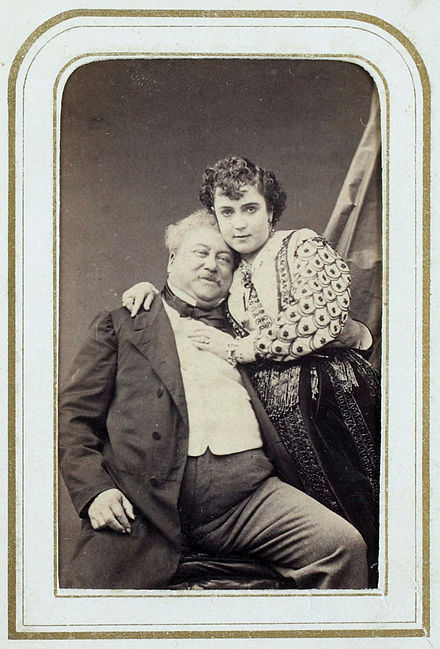And now, the plot
Or,
Edmond Dantes; If God didn’t want me to do this he’d have killed me by now
It might actually take me a few posts to simplify the plot because The Count Of Monte Cristo is, in actuality, several interweaving stories
Part 1: The book versus films
Whom we must be revenged upon:
Mercedes; Edmond’s betrothed who panic marries his rival
Fernand; Edmond’s love rival for Mercedes who posts the allegations against Edmond which lead to his imprisonment
Most films emphasize this particular revenge and minimize the revenge on Villefort which is arguably the stupidest move. Genuinely. What happens to Villefort is so much more intricate and interesting. By focusing purely on the love story which is not the center of the novel these films do absolutely no justice to how fucked up Edmond Dantes is. A huge bummer.
Commonly in film: Mercedes’ son Albert is kidnapped and miraculously saved by the mysterious Count of Monte Cristo. The count uses Albert to be introduced into society. Mercedes is still in love with Dantes, recognizes him, explains that she needed to marry Fernand because Dantes had gotten her pregnant, after a duel with Fernand, they all run away together, lovers and bastard son. Hooray.
INCORRECT. Chronologically:
The mysterious Count of Monte Cristo buys a slave named Haidee. She is the daughter of a disgraced Vizier and former princess in a Grecian court of Arab descent.
She worships him as her savior and he does not treat her as a slave but as a ward, often bringing her to social events to show off her beauty (allegedly)
Monte Cristo indeed arranges for Albert to be kidnapped, Albert is really cool about it. By the time Albert leaves, all of the smugglers are shaking his hand and they’re all buddies. He calmly is like ‘oh cool, you saved me? You didn’t need to but that’s chill of you. Let’s be best friends’ and Monte Cristo is like yeah sure.
Monte Cristo avoids Mercedes at all costs and is weird about Albert being like ‘man my mom is cool. You wanna meet my mom? I’d fuck my mom if we weren’t related’
Monte Cristo keeps introducing Albert to Haidee saying ‘man, she’s the best. Isn’t she great? Wouldn’t it suck if she had a tragic past related to your dad? Definitely not a past linked to me. Your dad does fucked up shit a lot. Didn’t your dad used to work for a Vizier in Greece when he was a sailor before he became super mega rich for no reason. Anyway, check out my hot daughter. Hope you don’t fall in love with her’
And Albert’s like ‘my mom is cool’. And Monte Cristo is like ‘yeah, yeah she’s great, shut up’.
Eventually it becomes unavoidable and Monte Cristo and Mercedes meet.
Mercedes is still in love with Dantes, is the only one to recognize him, explains that she needed to marry Fernand because she didn’t know what else to do and has lived basically in mourning her whole life having chronic nightmares of Edmond’s reported death. She and Fernand have a loveless relationship that both tolerate. Their son, however, kicks ass and is the only thing Mercedes likes about being alive.
Albert agrees he’s Great. And also check out how cool my mom is. Monte Cristo is like yeah that’s nice, kid.
Eventually through repeatedly introducing Haidee and Albert, Monte Cristo is like ‘hey, tell this kid your tragic backstory but leave out names’. Haidee tells about her father being murdered and she and her mother being sold into slavery and a bunch of horrible shit that happened to her because Fernand sold the family out to be made a rich baron.
Albert and Monte Cristo get in a fight about Fernand after some intermediaries confirm that Fernand was the one who let to Haidee’s enslavement and orphaning. Fernand is like ‘this is really fucked up of my dad, but you shouldn’t say that in public’ and Monte cristo says ‘idgaf, he did it and I will talk about it’
They call for a duel.
Mercedes begs Edmond not to kill her son, Edmond agrees but knows he will have to let Albert kill him to maintain all of his lies, and laments still loving Mercedes as the worst thing about himself. And then he’s kind of like ‘or do I? She seemed cool about me letting her kid kill me. Yeah, fuck her actually’.
Then, at the start of the duel Albert mysteriously says ‘Actually I’m not offended’ and Edmond realizes Mercedes must have confessed everything.
Albert calls out his father about being a piece of shit so hard that Fernand kills himself and Albert and Mercedes leave town to start new lives.
Everyone agrees how cool Albert is. Mercedes ages rapidly, like rapidly, from being all disgraced and what not. Monte Cristo says ‘yeah, that sucks, man. Guess I’m revenged since Fernand is dead’.
Monte Cristo and Haidee realize they’re the only people who get each other, because of all the wanting revenge, and run away together. Monte Cristo is on a boat with Haidee, sailing away like ‘wow. What a messed up time I’ve had.’
Now that alone could be one book. But it’s not! Because we have other people to hate and plot against…


You must be logged in to post a comment.